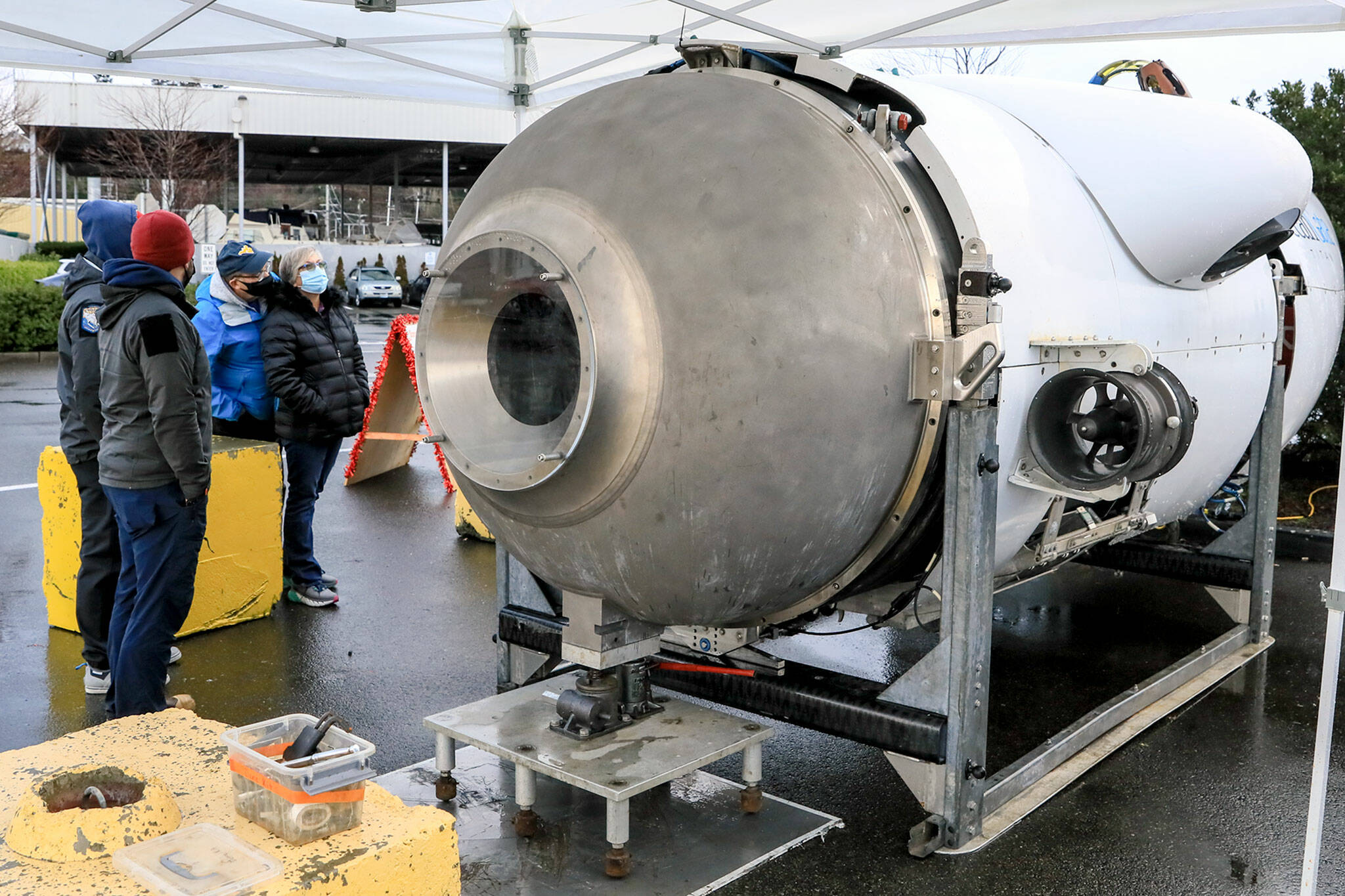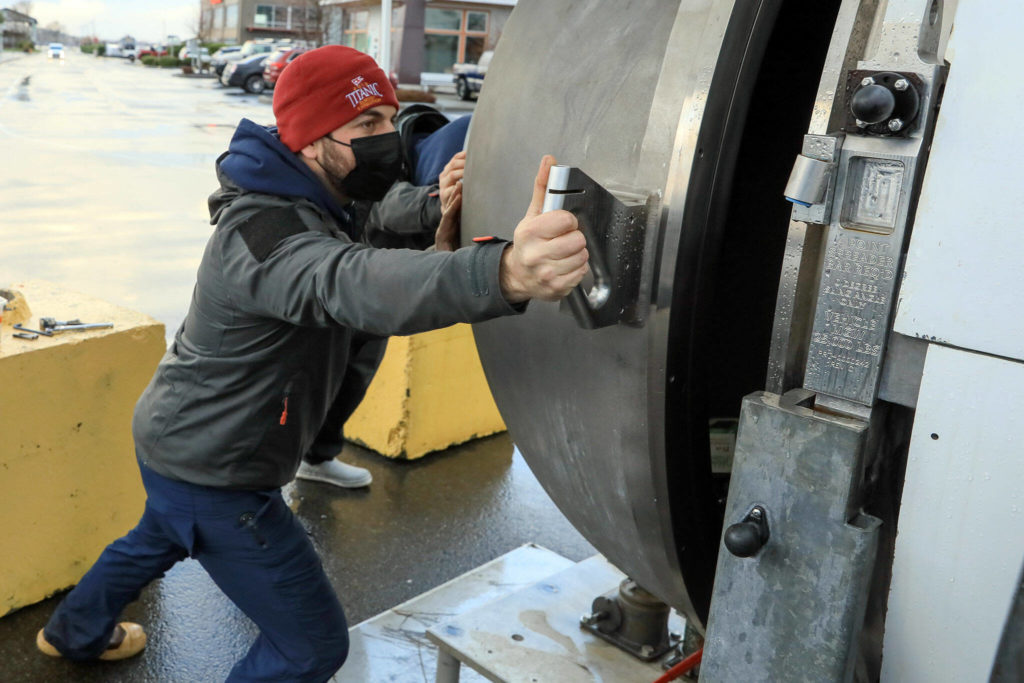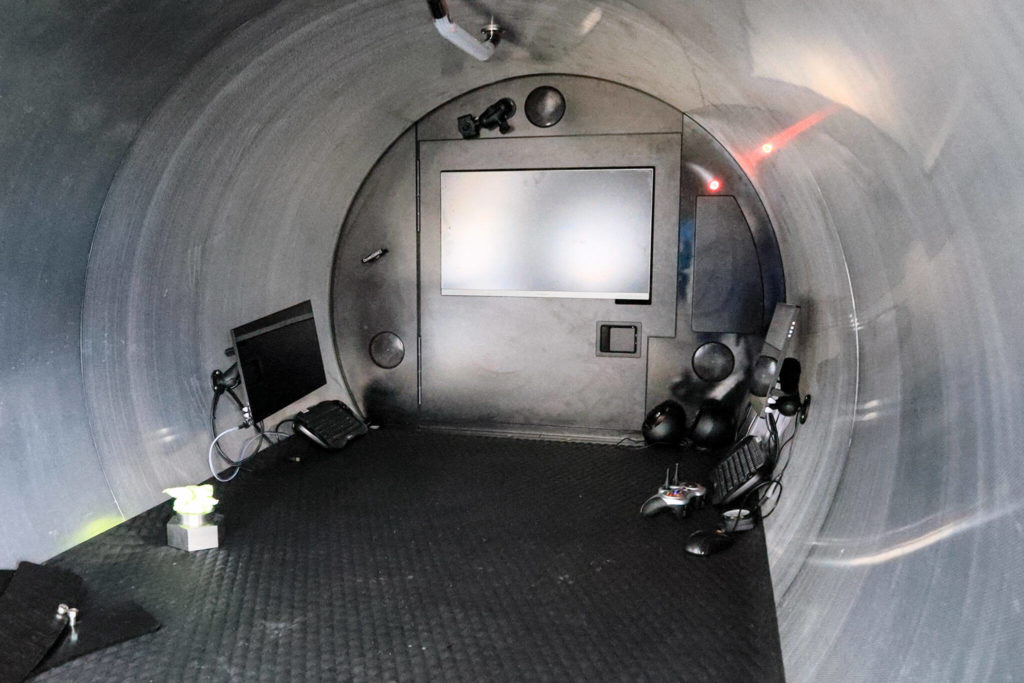EVERETT — You weren’t really planning on doing anything at 6 a.m. Saturday, so why not take a virtual field trip to the spot where the RMS Titanic sank?
The Everett company OceanGate and its five-person submersible, Titan, plan a deep dive to explore the ship, which rests on the bottom of the North Atlantic Ocean.
OceanGate first ferried passengers and researchers to the Titanic last summer. But this year you and your kids can join the expedition without having to buy a $250,000 round-trip ticket.
That’s the going rate for a seat aboard Titan and covers the two-mile trip to the shipwreck.
OceanGate and Seattle-based Varsity Tutors have teamed up and are offering a live video stream Saturday at 6 a.m. that’s free to everyone.
The broadcast, “Journey to the Titanic: Live Expedition,” is topside, aboard the support vessel carrying Titan and its crew. (Live streaming the sub’s trip to the shipwreck would cost millions to produce due to production and engineering requirements, OceanGate said.)
You can register for the program at bit.ly/3bV8OGa until a few minutes before it starts.
Can’t fathom the 6 a.m. start? Sign up for the broadcast anyway and you’ll receive a link to view it later.
OceanGate plans a series of eight-day missions through August 25 that begin and end in St. John’s, Newfoundland, some 400 miles from the Titanic’s final resting place. Each mission is accompanied by a memorial honoring the victims.
This year’s expedition includes more than two dozen paying clients.
“There’s more than the story of the Titanic. There’s what it takes to get down there,” said Brian Galvin, Varsity Tutor’s chief academic officer. The firm offers tutoring for students in pre-kindergarten to college-level courses.
What it takes: a five-inch thick carbon fiber hull and the ability to withstand 160 million pounds of pressure. And for those aboard the sub, patience in tight quarters. It’s a 10-hour trip with an onboard restroom the size of a milk crate.
The company worked with the National Aeronautics and Space Administration to build Titan, a fully electric submarine. Lithium batteries, which charge overnight, power it. The controls are based on a Logitech video game controller.
Stockton Rush, OceanGate’s founder and CEO, and David Concannon, who has been involved in a half-dozen Titanic expeditions, will emcee the 45-minute program.
Concannon, an attorney, pitched the free livestream event to OceanGate a couple years ago, as a way to encourage kids’ interest in history, science and engineering.
He has been part of more than a dozen expeditions to explore, film and recover artifacts from shipwrecks like the Titanic, Bismarck and Britannic. In 2013, he led an Atlantic Ocean expedition to find and retrieve Apollo F-1 rockets from the Apollo moon missions. The effort was funded by Amazon founder Jeff Bezos.
This year’s OceanGate expedition builds on data researchers have collected since the Titanic was located in 1985, the company said. “We are focusing on the marine biology of the the wreck,” Rush said.
The sunken ship now harbors coral, crabs and fish.
High-definition cameras and 3D sonar scanners will scrutinize the ship’s condition. Swarms of metal-eating bacteria are overrunning the wreck, eating the manganese, iron and sulfur within the steel, weakening the ship, OceanGate said.
On April 15, 1912, four days into the Titanic’s maiden voyage, the ship struck an iceberg near Newfoundland, Canada. It took less than three hours for the then world’s largest ship to sink, killing 1,500 of its 2,240 passengers.
While Hollywood has put the spotlight on Titanic’s well-heeled passengers, Concannon has researched the ship’s third-class ticket holders, mostly immigrants bound for United States or Canada.
Depending on what side of the ship they occupied, the likelihood of their survival ranged from almost nil to 50%, Concannon said.
In other cases, survival was tied to how a ship’s officer interpreted the “women and children first” directive, Concannon said. “There were some lifeboats that went out with only women and children,” he explained.
Basic information about the Titanic’s sinking can be found online, Concannon said. During Saturday’s broadcast, he hopes to offer some less well-known facts about the historic vessel and its passengers and crew.
Pique their interest and “you can trick kids into learning,” he said.
Janice Podsada: 425-339-3097; jpodsada@heraldnet.com;
Talk to us
> Give us your news tips.
> Send us a letter to the editor.
> More Herald contact information.



























